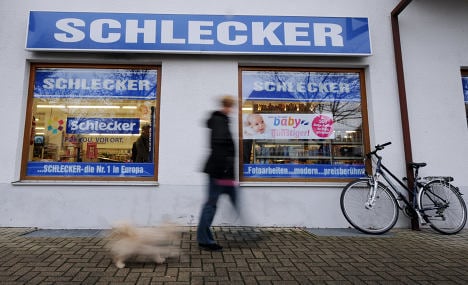“There is nothing there anymore,” said Meike Schlecker at a press conference – the company’s first since the 1990s – held on Monday in Ehingen, Baden-Württemberg. “My father’s fortune was always the company.”
Originally a butcher, Anton Schlecker started his chain in the 1970s, eventually opening thousands of branches and amassing a fortune of more than €1 billion. But he has been criticised for his secretive ways. In 1987 Meike and her brother were kidnapped and temporarily held for ransom and since then the now 68-year-old has strived to appear out of the media spotlight.
His company has also been called behind the times, only beginning last year to refurbish its tattered outlets and addressing accusations that management mistreated employees.
The insolvency application, officially filed earlier this month, came in the face of debts to suppliers worth tens of millions of euros and an inability to get new financing. Still the company’s roughly 6,000 stores in Germany are operating normally for the time being, while Schlecker tries to reorganise and remain a viable business.
Insolvency administrator Arndt Geiwitz said he believed the chain could be saved, with a large stake staying in family hands. He said discussions were ongoing with creditors and suppliers were trying to work with the company.
“All suppliers have understood very quickly that they have a big interest in the continued interest of the Schlecker drugstore chain,” he said, although he added that there remained many questions surrounding the future of the company’s 32,000 employees.
The Local/DPA/mdm



 Please whitelist us to continue reading.
Please whitelist us to continue reading.
Member comments